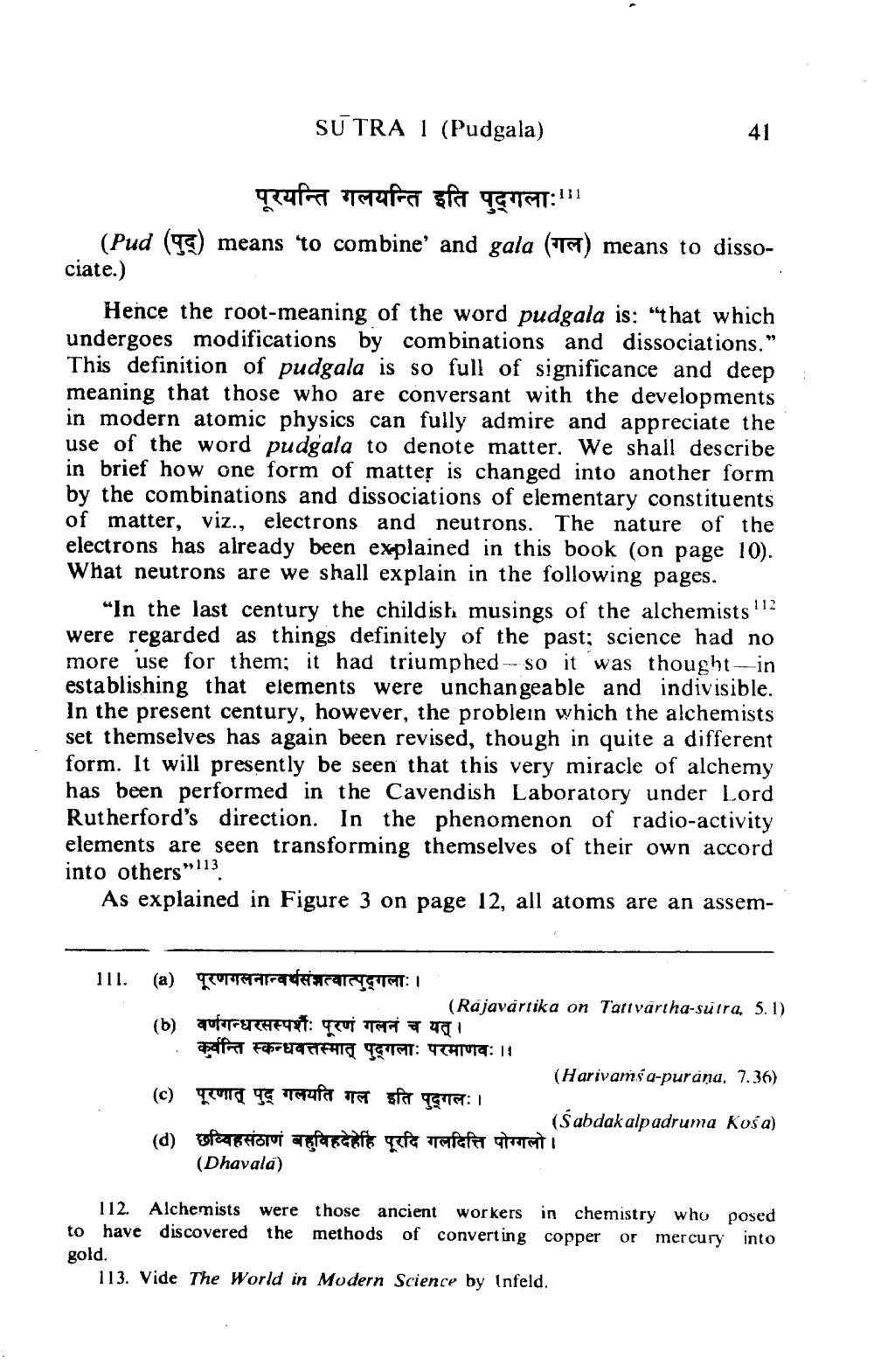________________
SUTRA 1 (Pudgala)
पूरयन्ति गलयन्ति इति पुद्गलाः "
(Pud () means to combine' and gala (T) means to dissociate.)
111.
4
Hence the root-meaning of the word pudgala is: "that which undergoes modifications by combinations and dissociations." This definition of pudgala is so full of significance and deep meaning that those who are conversant with the developments in modern atomic physics can fully admire and appreciate the use of the word pudgala to denote matter. We shall describe in brief how one form of matter is changed into another form by the combinations and dissociations of elementary constituents of matter, viz., electrons and neutrons. The nature of the electrons has already been explained in this book (on page 10). What neutrons are we shall explain in the following pages.
41
112
"In the last century the childish musings of the alchemists were regarded as things definitely of the past; science had no more use for them; it had triumphed so it was thought-in establishing that elements were unchangeable and indivisible. In the present century, however, the problem which the alchemists set themselves has again been revised, though in quite a different form. It will presently be seen that this very miracle of alchemy has been performed in the Cavendish Laboratory under Lord Rutherford's direction. In the phenomenon of radio-activity elements are seen transforming themselves of their own accord into others"113
As explained in Figure 3 on page 12, all atoms are an assem
(a) पूरणगलनान्वर्थसंज्ञत्वात्पुद्गलाः ।
(b) वर्णगन्धरसस्पर्शैः पूरणं गलनं च यत् । कुर्वन्ति स्कन्धवत्तस्मात् पुद्गलाः परमाणवः ।।
(Rajavartika on Tattvartha-sutra, 5.1)
(c) पूरणात् पुद् गलयति गल इति पुद्गलः ।
(d) छव्विहसंठाणं बहुविहदेहेहिं पूरदि गलदित्ति पोग्गलो । (Dhavala)
(Harivams a-purana, 7.36)
(Sabdakalp adruma Kośa)
112. Alchemists were those ancient workers in chemistry who posed to have discovered the methods of converting copper or mercury into
gold.
113. Vide The World in Modern Science by Infeld.




